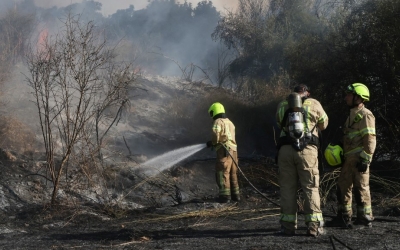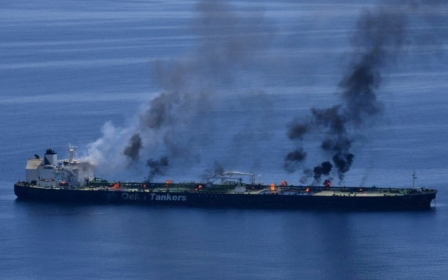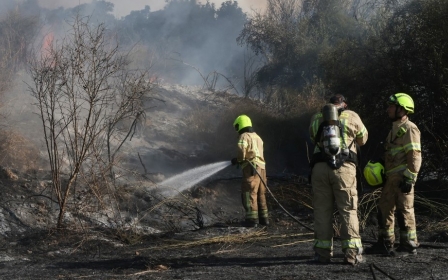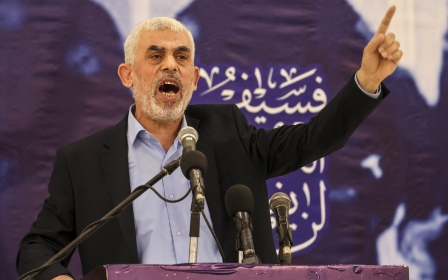Hamas chief Sinwar thanks Yemen’s Houthis for support in letter from Gaza
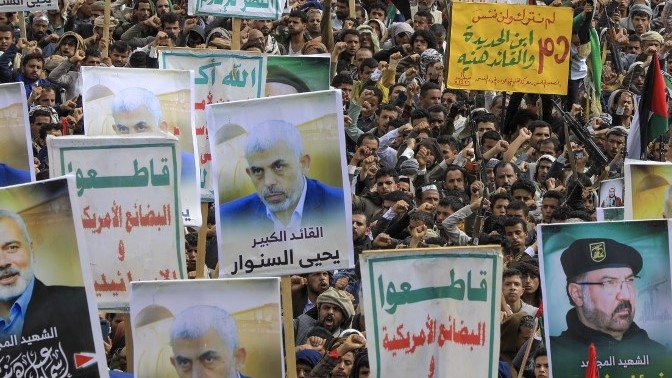
Hamas chief Yahya Sinwar, who has managed to evade the Israeli army for more than 11 months, has written a letter to Yemen's Houthi movement thanking them for their support against Israel and commending the armed group on its recent missile attack.
"I congratulate you on the success of your missiles reaching deep into the heart of the enemy entity, surpassing all layers and systems of defence and interception," Sinwar wrote in the letter published by Houthi media on Tuesday, addressing Sayyid Abdul-Malik Badr al-Din al-Houthi, the head of the Yemeni group.
The Houthis, who control most of Yemen and the capital Sanaa, on Sunday claimed a missile attack that hit the centre of Israel but did not leave any casualties. They said the attack was carried out with a new hypersonic ballistic missile, a claim denied by the Israeli military.
The group's media published a description of the missile allegedly used in the attack. Labelled Palestine 2 Hypersonic, the missile reportedly has a range of 2,150 km, with speeds of up to Mach 16, which is 16 times the speed of sound.
"Its manoeuvrability is very high, beyond the world's latest and most powerful air defence systems, including the Iron Dome," the group said in publicity material for the attack.
New MEE newsletter: Jerusalem Dispatch
Sign up to get the latest insights and analysis on Israel-Palestine, alongside Turkey Unpacked and other MEE newsletters
Houthi media said Israel’s defence system failed to intercept the missile.
Meanwhile, Israeli Prime Minister Benjamin Netanyahu said the Houthis would pay a "heavy price" for the attack.
The Iran-aligned group, officially known as Ansar Allah, have been launching attacks on Israeli-linked ships in the Red Sea since November, following Israel’s devastating military campaign against the Gaza Strip that has so far killed over 40,000 Palestinians, mostly civilians.
The Yemeni group says their attacks are in solidarity with Palestinians in Gaza.
Hamas ready for 'long battle'
Sinwar said in his letter that his group is prepared for a protracted conflict with Israel, aided by the Houthis and other allies in the region, including Hezbollah in Lebanon and the Islamic Resistance in Iraq.
"We have prepared ourselves for a long battle of attrition that will break the enemy's political will, just as the Al-Aqsa Flood shattered its military will," he wrote, referring to the 7 October attack by Hamas on southern Israel, which killed more than 1100 people, most of them civilians.
"The Zionist enemy believed that the genocide it is committing against our Palestinian people, along with the containment and neutralisation steps for the resistance fronts overseen by the United States and its allies, would make it victorious in its Nazi war against our Palestinian people," read Sinwar's letter.
"But your unique operation yesterday morning sent a clear message to the enemy that the plans of containment and neutralisation have failed, and that the support fronts have begun to have a more effective and powerful influence on the path to decisive victory for our proud and free peoples."
The prosecutor of the International Criminal Court in May requested arrest warrants for Sinwar and Netanyahu, as well as Israeli Defence Minister Yoav Gallant, in connection with charges of war crimes and crimes against humanity committed during the Israeli-Palestinian conflict since 7 October.
Sinwar, the architect of the 7 October attack, is believed to be based in a tunnel in Gaza. His predecessor, Ismail Haniyeh, was assassinated in Iran in July.
Middle East Eye delivers independent and unrivalled coverage and analysis of the Middle East, North Africa and beyond. To learn more about republishing this content and the associated fees, please fill out this form. More about MEE can be found here.


